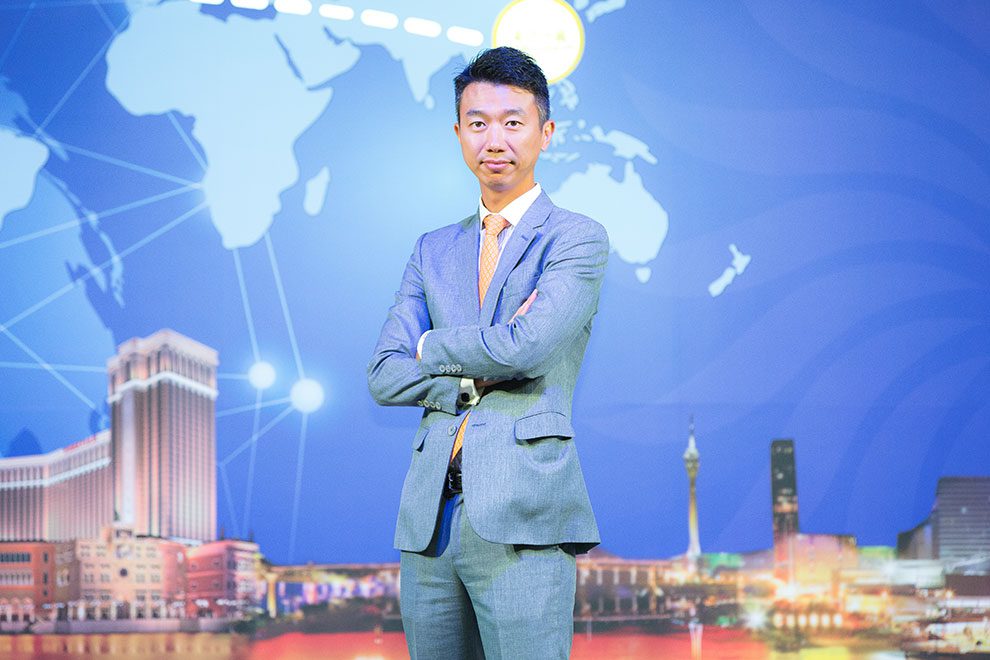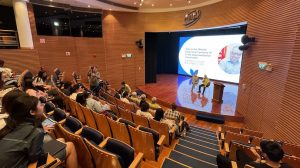“The times they are a-changin’,” American singer-songwriter Bob Dylan famously proclaimed in his 1964 album of the same name. If that is true in the arts – as Dylan himself proved, becoming in 2016 the first songwriter ever to be awarded the Nobel Prize in Literature – the same goes for hospitality. Today’s hotels are a far cry from those in which Dylan stayed during his concert tours in the 1960s. Hospitality concepts have evolved and the pervasive use of technology has significantly changed the experiences available to hotel guests. Macao is no stranger to the trend.
“Macao is seeking to become an economically-diversified and ‘smart’ city in the next 5 years,” says IFT alumnus Mr. Paulo Cheong. “The transformation in hospitality is under way.”
Mr. Cheong has had a front-row seat to witness these changes as an up-and-coming, talented staff member at integrated resort operator Sands China Ltd, the firm behind Cotai properties the Venetian Macao, Sands Cotai Central and the Parisian Macao. He is currently Sands China’s Vice President of Human Resources.
“Sands China, for example, has already embarked on an integrated resort business model, offering diversified and innovative elements to draw visitors,” Mr. Cheong says.
The changes taking place in the hospitality industry are also having an influence on what hospitality firms look for when hiring professionals, he notes. “As a result, hotels will be looking for employees with a multifaceted approach to their work; people that can keep pace with the changing industry landscape,” Mr. Cheong says.
He advises IFT students to broaden their horizons, invest in self-learning and be open to innovation. “We should let go of traditional mindsets towards tourism, and gear up for the new integrated resort business model.”
From student to VP
Mr Cheong graduated from IFT in 2003 with a Bachelor of Science in Tourism Business Management. He later earned a master’s degree in business administration from another local university.
His career had a challenging beginning, as job vacancies were scarce in the traditional tourism sector. After graduation he took a job in customer service and operations, first at a telecoms operator and later with a helicopter transport company.
In 2006, Mr. Cheong joined Sands China’s corporate predecessor as a financial analyst and worked his way up through the business to become Vice President of Human Resources.
Over the past 13 years, he has gained experience in a variety of roles within the group, from finance, to operations, and human resources.
“I have gained a lot of working experience in different areas, like having an idea of salary packages, benefits, recruitment; the planning for Sands Cotai Central; as well as developing the human capital plan for the opening of the Parisian Macao,” Mr. Cheong recounts.
Expressing his gratitude to IFT for the quality of education provided to him, he adds: “I decided to build my career in tourism when I was studying at IFT. The education [the Institute provided me] has also prepared me for different training programmes at Sands China.”
In 2017, Mr Cheong was selected for the first Sands China International Strategic Leadership Programme for Integrated Resorts. He was one of 2 IFT alumni invited to take part in the scheme.
The programme was aimed at developing future leaders in integrated resort management. It had 25 participants and was designed specially for management-level staff.
In a 5-month period, trainees attended leadership development classes at 3 prestigious universities on 3 continents. Those institutions were the Católica Lisbon School of Business and Economics in Lisbon, Portugal; the Cornell School of Hotel Administration in Ithaca, New York State, in the United States; and the University of Saint Joseph, in Macao.
“This programme is highly practical and encourages strategic thinking,” says Mr. Cheong. “It expanded my vision and made it global, and enhanced my strategic thinking skills.”









